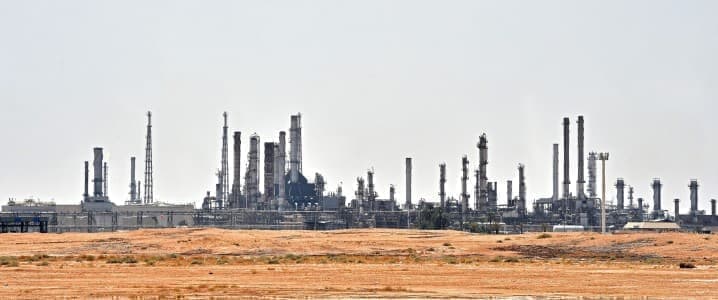President Joe Biden and Saudi Arabia's King Salman spoke this week about energy prices, with both saying their countries were committed to stability on the energy market.
The talks come amid high oil—and fuel—prices in an election year for the American administration.
Earlier this week, White House spokeswoman Jen Psaki said that all options were on the table when it came to oil price control. She added that "With oil-producing countries, we're talking about proposed production increases. With oil-consuming countries, we're talking about releases from strategic reserves," as quoted by Reuters.
Psaki went on to add that "Nobody should hold back supply at the expense of the American consumer, particularly as the recovery from the pandemic continues, and oil producers around the world have the capacity to produce at levels that match demand and reduce the high prices."
As for the talks between President Biden and King Salman, a statement issued by the White House following their call focused on the Yemen situation and the wider Middle Eastern political context, with a sentence towards the end saying, "Both leaders further reiterated the United States' and Saudi Arabia's commitment to ensuring the stability of global energy supplies."
Saudi Arabia is one of few OPEC+ members that have the spare production capacity to make up for shortfalls among other members where underinvestment or other problems are preventing them from pumping to their quotas. In the past, the Kingdom has demonstrated reluctance to do so, prompting Washington to announce a release from the strategic petroleum reserve to rein in prices at the pump.
The move was as unsuccessful as analysts expected it to be: the effect of the news on prices was short-lived and as crude oil continued up, so did retail fuel prices in the U.S. and elsewhere.
By Charles Kennedy for Oilprice.com
ADVERTISEMENT
More Top Reads From Oilprice.com:
- Big Oil Isn’t Losing Any Sleep Over The EV Revolution
- Mining Majors Are Treading Carefully As Battery Metals Boom
- The Next Big Problem For U.S. Shale



















The situation now is in many ways similar to 2008 but with two unique differences. The first is that the global oil market is the most bullish since 2014. The second is that the market is already in a super-cycle phase that could last ten years and could take Brent crude to $120 a barrel in the next few years.
We could expect the same outcome from the telephone conversation this week between President Biden and Saudi King Salman. Neither Saudi Arabia nor OPEC+ has enough capacity to stem the accelerating rise in oil prices.
OPEC+ is doing its utmost to keep the market balanced but it isn’t prepared to raise its production beyond what it has already committed itself to so as not to push the market to glut. A Brent crude ranging from $80-$100 a barrel is what the overwhelming majority of OPEC+ members with the exception of Russia need to balance their budgets. However, OPEC+ won’t hesitate to raise production further if the market becomes extremely tight.
Dr Mamdouh G Salameh
International Oil Economist
Visiting Professor of Energy Economics at ESCP Europe Business School, London